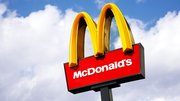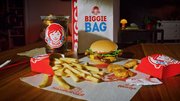Blog
McDonald's 'hair-growing fry additive' may pose a PR conundrum

February 7, 2018 by S.A. Whitehead — Food Editor, Net World Media Group
Additives are typically shunned in QSR operations today, but news that a silicone additive in McDonald's fries might also help cure baldness presents a true conundrum for the brand's public relations team.
In the U.S. alone, about 4.6 million people lose much of their hair through one form of baldness, known as alopecia areata, according to the North American Hair Research Society. It's likely some of those individuals frequent the QSR, and it's tough to say whether this latest science news will attract them to the brand or end up deterring more customers, who might want to avoid additives.
Research funded by the Asahi Glass Foundation and originally published last October in the Journal of Biomaterials reported that Yokohama National University stem cell research team regrew hair on mice using dimethylpolysiloxane, the silicone that McDonald's also adds to their fries to prevent cooking oil from frothing, according to an abstract of the article in ScienceDirect.
Preliminary testing showed the relatively simple technique proved just as effective as current practices that use human skin cells to regrow hair. The technique produces something called hair follicle germs or HFG, which allow hair regrowth.
The Yokohama National University team found that the dimethylpolysiloxane — that McDonald's fry additive — proved a great material to mass produce those hair follicle germs the researchers said.
Those germs are then injected into the backs of nude mice which essentially became mice with black hair in a matter of days.
A Newsweekreporter quoted one of the Japanese researchers as reporting that the method was not only simple but fruitful when it comes to regenerating hair for those with the very prevalent issue that some men detest known as male pattern baldness.
It's still unclear whether the additive is also used by other restaurant brands to also cut down on frothing during the fry-cooking process. Nor is it known how long McDonald's has used the additive and how the brand responds to the research, since the news could affect traffic and sales at the QSR in a number of different ways.
As of press time, McDonald's had not responded to a request for more information.
Photo: iStock
About S.A. Whitehead
Pizza Marketplace and QSRweb editor Shelly Whitehead is a former newspaper and TV reporter with an affinity for telling stories about the people and innovative thinking behind great brands.
 ChatGPT
ChatGPT Grok
Grok Perplexity
Perplexity Claude
Claude








